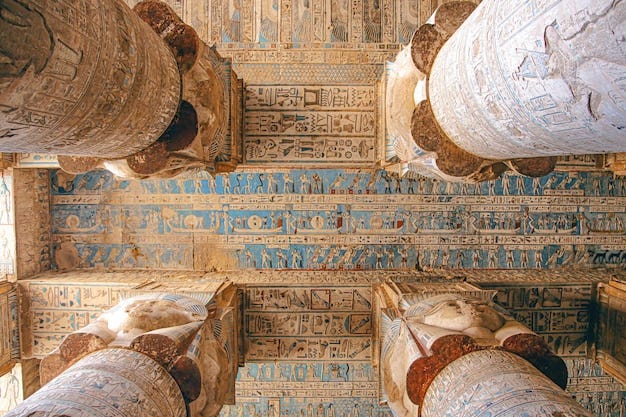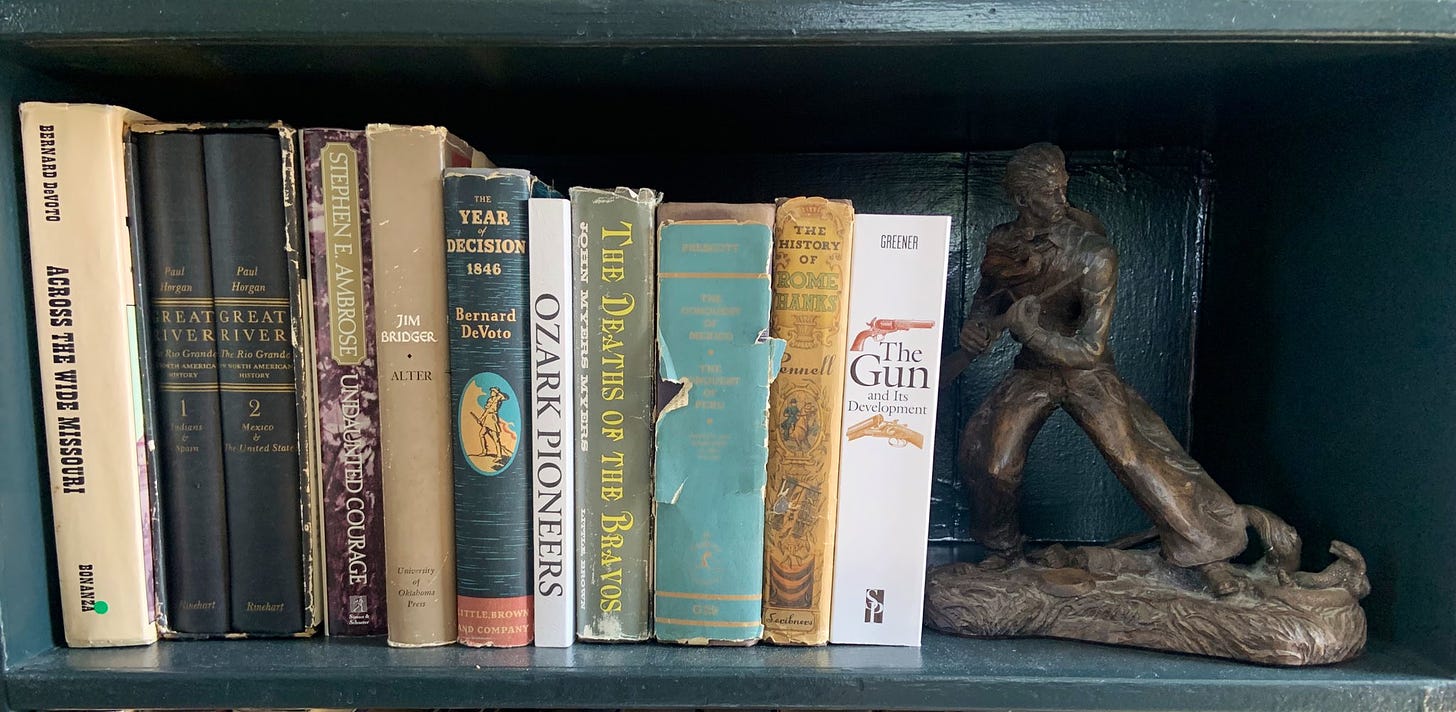“Light dies before thy uncreating word:
Thy hand, great Anarch! lets the curtain fall;
And universal darkness buries all.” —Alexander Pope, The Dunciad
The Cosmic Library
The Universal Menace
In 1983, Russell Kirk offered a powerful defense of universities in an essay for the The Modern Age, “The Tension of Order and Freedom in the University.” After affirming the necessary tension between freedom and order, Kirk guides his readers through various historical epochs, identifying the rise and fall of freedom with the birth and death of transcendent order.
If the great troubles of our time teach mankind anything, surely we ought now to recognize that true freedom cannot endure in a society that denies a transcendent order. A university that ridicules the claims of the transcendent must end without intellectual coherence—and without genuine intellectual freedom.
The university once had authority—it was authority—because it ultimately submitted to a higher spiritual jurisdiction. But times have changed, and for the worse. The madness, corruption, and godlessness of the modern university is well known, and we are now witnessing every discipline, even the hardest of sciences, fall into intellectual incoherence.
Kirk reminds us that chaos has always been the universal danger, with universities once serving as a bulwark against license, anarchy, passion and prejudice. Historically, these institutions disciplined and ordered the mind, which, in turn, helped to stave off the universal menace of chaos.
“Chaos is coming,” biologist Lyall Watson warns, “It is written in the laws of thermodynamics. Left to itself, everything tends to become more and more disorderly until the final and natural state of things is a completely random distribution of matter.”
But fear not, there is hope!
Any kind of order, even that as simple as the arrangement of atoms in a molecule, is unnatural and happens only by chance encounters that reverse the general trend. These events are statistically unlikely, and the further combination of molecules into anything as highly organised as a living organism is wildly improbable. Life is a rare and unreasonable thing.
The continuance of life depends on the maintenance of an unstable situation: It is like a vehicle that can be kept on the road only by continual running repairs and by access to an endless supply of spare parts. Life draws its components from the environment. From the vast mass of chaotic probability flowing by, it extracts only the distinctive improbabilities, the little bits of order among the general confusion. Some of these it uses as a source of energy, which it obtains by the destructive process of digestion; from others, it gets the information it needs to ensure continued survival. This is the hardest part, extracting order from disorder, distinguishing those aspects of the environment that carry useful information from those which simply contribute to the over-all process of decay. Life manages to do this by a splendid sense of the incongruous.
“The cosmos is a bedlam of noisy confusion, ” Watson continues, “We all have this ability to focus on certain stimuli and to ignore others… These are responses that we learn, but all life automatically sorts out environmental chaos in the same way and concentrates only on the improbable orderly events hidden in the prevailing disorder… Living organisms select information from their surroundings, process it according to a program, and supply an output of order.”
Life is order and order is miraculous. That we the living can fight the universal menace of chaos, and bring any order into the world at all, should fill us with gratitude.
But what do we do when the institutions responsible for preparing our minds for this great task are thoroughly corrupted, or worse, generate endless chaos? After all, as Kirk reminds us, “Intellectual chaos promptly brings on social chaos.”
Scared to Death
Kirk’s solution to the problem was a rekindling of faith—the renovation of a transcendent order. A daunting task, to be sure, but if Kirk is right, where should ordinary people begin?
Let’s step back into the past, to an even more mysterious place and time than any of Kirk’s selections.
Did you know that the ancient Egyptians were terrified of chaos? The Babylonians were, too. It haunted their dreams and paralyzed them with fear. You see it in their stories, rituals, and astronomical practices. But it is most apparent in their architecture, some of which still survives to this day. Think about that.
These civilizations were intimately aware of Watson’s observation that the normal state of matter is chaos, and they took great pains to preserve the anxiety it gave them. The Babylonians tried to conquer chaos through knowledge—mathematics, physics and astronomy—but the Egyptians took a slightly different approach, cultivating knowledge through transcendent rites and rituals.
You see, the Egyptians seem to have believed that the mind was the only weapon against chaos, and without it, the universe would simply sink into oblivion. But the mind has its limitations, of course; idleness and confusion will spoil it over time. Therefore, the Egyptians believed that mind and spirit—being profoundly interconnected—ought to be disciplined and ordered together. This process took place in temples and other spiritual edifices, where an initiate could develop a cosmic strength and security through a series of rituals which would guide him on his path to greater knowledge.
These temples were beautiful, mysterious, and conveyed a sense of the eternal. Most importantly, they were made to represent the universe in miniature, providing a fixed point of order in a gaping abyss and revealing man’s place within it.
In the same tradition, Egyptians even had their own version of a university, which, curiously enough, was known as the “House of Life.”
The Cosmic Library
The ancient Egyptians are long gone, and their exquisite temples now belong to tourists. But the universal danger Kirk warned us about persists, and with the loss of ritual and the slow decay of our churches and universities, we may find ourselves grasping for some cosmic strength and security.
We can no longer rely intellectually or spiritually on institutions that reject a transcendent order; and people who continue to do so will only invite greater chaos into their lives and end up struggling in vain anxiety and existential terror.
In the absence of such things we ought to remember the miraculous nature of our very being… that we the living are a rare and improbable thing, with a talent for creating order amid this boundless sea of chaos.
For our own sake, we need to build.
Every now and then I post photos of my personal library. It is a special place to me, where I spend much of my free time. It is clean, comfortable, and (usually—please don’t ask my wife) orderly. Just as the home is a haven in a heartless world, a library can be refuge from the ignorance, fanaticism, and lies of a culture that has rejected transcendent order.
Like a temple of old, this library of mine is a place of ritual and learning, where mind and spirit are disciplined together. It is the result of years of preparation, planning, and collecting, and now serves as a foundation of knowledge for my children and me. It is a cosmic library, for it contains the wisdom of ages, the story of a people, and the history of my family; it helps me orient myself. Here, at least, I know my place in time, the world, and the wider universe.
We cannot rid the world of chaos, and we may not save the universities, but we can always establish a little order that disciplines both mind and spirit and enables us overcome the decay all around.
We need to recover our own intellectual bearings. Doing so, as Kirk reminds us, will promptly restore social order.
So let’s get to work restoring order, starting with our libraries and quiet places. The universe depends on it.








Clear the wilderness of beasts and savages.
That the wilderness is urbanized doesn’t change the fundamentals.
Then build.
Our ancestors did it before.
It must be done again.
With the wrecking crew in charge and facing no real actual challenge building a quiet space is past futility and positively masochistic. This is attempting to erect a Benedictine monastery during a Viking raid.
But the enemy are not Vikings. On the Contrary the wrecking crew are weak, sniveling and clearly terrified cowards. Their gifts lie in corruption, subversion, demoralization , poisoning the air with doubt, there most active weapon literally poisoning- the vaccines, possibly even the disease. They are cowards, but very dangerous cowards.
Our gifts lie in the opposite direction, we are not cowards.
Indeed let’s be plain; our courage is our chief offering to the world, at the time its most needed.
Let us clear the land of the enemy, then we can build again.
The Librarians …cannot do what we do… only we can give the rest a chance.
One last chance for us to throw the iron dice … then…
bello fortuna.